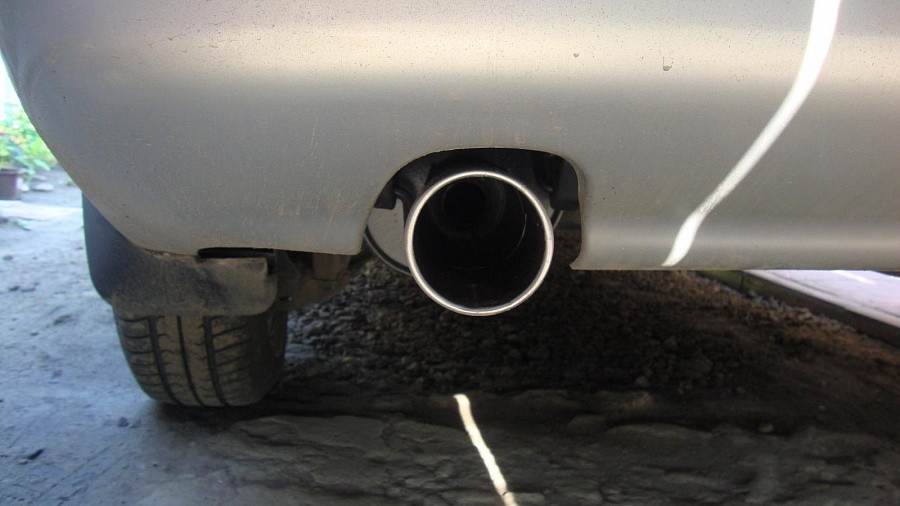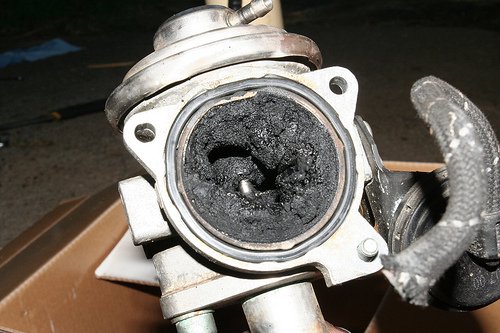
How to Fix Car Exhaust or Engine Noise Problems
Automotive exhaust systems and vehicle engines make a humming, clicking, or hissing sound when the belt, alternator, water pump, or idler pulley is faulty.
By its very nature, an internal combustion engine must make noise. Anytime you have a controlled explosion happening multiple times per second, there's bound to be some sort of rumble coming from the engine bay. While most of today's advanced exhaust systems are designed to dampen road noise, there are times when they break, wear out, or crack, causing an engine noise or exhaust situation, which is usually a sign of a potentially expensive repair.
However, not all noises are the same; or caused by similar mechanical component failures. The point is that there are several different types of noise produced; each contributes to a different mechanical failure.
Understanding common noises associated with engine or exhaust system failure.
To correctly identify noises and eliminate their source; We've taken the liberty of documenting a few common sounds that a damaged component makes and what typically causes those noises in the sections below.
Description of this sound: Essentially, a hissing sound is the sound of steam or steam escaping from a pressurized source. The gurgling sound is usually associated with boiling water and a hissing sound similar to the sound of hot bacon frying in a pan.
What is the reason for this sound? In many respects these three sounds are usually attributed to the same source; overheating of the engine or cooling system. When you hear a hissing sound, it's usually due to steam leaking from the radiator cap, overflow tanks, or a recent hole in some part of the cooling system.
When the coolant begins to heat up above 200 degrees, it begins to boil, which, if kept in a closed system (such as a radiator), will create excess pressure. Once this pressure reaches a certain "boiling point", it will also make a gurgling sound. Some people say that the gurgling sound is like a coffee pot leaking.
A hissing sound is usually the result. This occurs after the engine has overheated and is caused by coolant or oil being forced out of a containment source and onto hot exhaust system components, cylinder block, cylinder heads, or intake manifold. The hissing sound is also usually associated with problems with the catalytic converter.
In some cases, the materials inside this component wear out over time, requiring that part to be replaced. If an excessive amount of heat builds up inside the catalytic converter, it can often make a hissing or hissing sound. The sound is usually followed by the smell of rotten eggs, which is usually an indication of engine inefficiency.
Any time you hear any of these three sounds, the driver must take immediate action to reduce the chance of further damage to multiple engine components. Engine overheating can cause cylinder head cracking or gasket separation, which will cause coolant to seep into the oil chambers and potentially damage internal engine components.
loud-exhaust‘>Loud exhaust Description of this noise: Although a finely tuned-exhaust system is music to most gear heads, the sound of exhaust escaping from the exhaust pipes, manifold or muffler is not something you want to hear. In most cases, this sound is similar to rattling steel inside of a cage or clanking metal. The engine tone will be deeper and it’s common to hear periods of engine backfiring when you have an exhaust leak somewhere in the exhaust system. What’s the cause of this sound? When your vehicle sounds as if it turned up the volume on the exhaust by a factor of three to five, it’s usually caused by a leak somewhere in the exhaust system. If the noise is coupled by a loss in engine performance, it means that the condition will be closer to the engine as opposed to closer to the muffler. Some of the more common components that cause this type of sound that may be broken, cracked or have become loose for some reason may include the following: The exhaust manifold The EGR valve The exhaust pipe connection to the manifold The exhaust pipe to catalytic converter Catalytic converter Catalytic converter to muffler pipe The muffler If you notice this sound, the best way to troubleshoot the source is to crawl underneath the vehicle while it is running to try and locate the source of the exhaust leak. It’s recommended to have a professional mechanic complete exhaust system repairs as they usually require specific tools or welding to be done to replace or repair broken exhaust components. обратный эффект’>reflecting
Description of this noise: The roar of the engine sounds like a very loud firecracker, like an M-80 or cherry bomb exploding from your exhaust. In some cases, the backfire will actually reverse direction and jump out of the injection system. This is more common in carbureted or turbocharged engines as opposed to typical fuel injected engines.
The kickback sound may originate from the intake or exhaust system. If this occurs in the intake system, the noise will come from the fuel system (fuel injector throttle body), and if from the exhaust system (which is most common), then from the tailpipe.
What causes the backlash? According to most professional engineers, the opposite situation can be caused by water entering the combustion system. However, the exact source of this condition is incredibly difficult to diagnose. The image shown above this section shows just some of the potential components that, if malfunctioning or damaged, could cause the engine to fire back.
Although vehicle fuel cells today are sealed and highly resistant to water entering the engine, the reality is that the fuel we put in the tank may contain trace amounts of water. As humidity rises, condensation can also become vaporized as air enters the fuel system.
When the fuel to air ratio has a higher water grain balance, the ignition system may fire later than it should. In most cases, this causes unburned fuel to enter the exhaust manifold, where the hot gases ignite and cause a backfire. If this occurs on the other side of the engine (intake side), it may be due to a vacuum leak or ignition system failure.
To troubleshoot the problem, it is recommended that you contact a professional mechanic and have the mechanic download any error codes found in your engine or exhaust system. In most cases, this condition causes the Check Engine Light to illuminate.
Description of this sound: Although the engine should run like a finely tuned clock, it should not sound like a clock while running. A noticeable ticking, clicking or knocking sound is often caused by a metallic click, as if something inside the engine is hitting one of the components with a metal stick. As the engine speed increases, the ticking or knocking sound usually increases as well. The description of this sound is actually the main source of this problem.
What causes this sound? There are two different sources of engine knocking or ticking sound. If your engine ticks or knocks, it seems to be coming from the top of the engine, this is usually caused by metal to metal contact. In most cases, this is due to a lack of oil in the cylinder head mount, low oil pressure, excessive valve component clearance, or a defective mount in the cylinder head.
A secondary source is often referred to as engine knock due to premature combustion. As shown in the above figure, normal combustion should be smooth and timed to enhance combustion within the combustion chamber for even power distribution. Premature combustion causes an uneven spark. This may be caused by incorrect ignition timing or improper fuel evaporation.
The best way to resolve this condition has two parts:
If the problem is oil, check the engine oil level. If the level is low, add oil until it is full and see if the ticking sound goes away. If oil pressure is the cause, you may need to have a professional mechanic check the oil pump or the components that provide oil pressure inside your engine.
If it is an ignition problem, check the ignition system timing or return to the recommended factory settings. Inspect the ignition system for signs of damage or test the fuel to determine if it is "bad."
In most cases, the ticking or knocking problem in the engine is one of the most difficult to solve; especially if it is caused by loose components inside the cylinder heads or engine. If these parts are not maintained or replaced in a timely manner, it can cause severe damage to several parts of the engine; including complete engine failure.
Noises in general can be very difficult to identify, so professional mechanics will often road test a vehicle to try to detect signs of mechanical damage. If you can determine the exact source of the engine noise but need help troubleshooting the problem, have a professional mechanic diagnose the engine noise or inspect the exhaust system.
